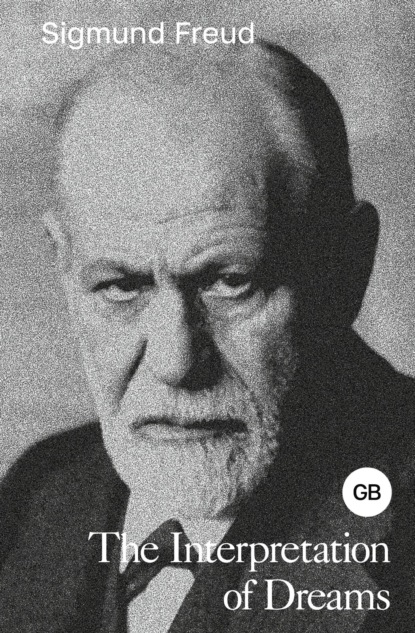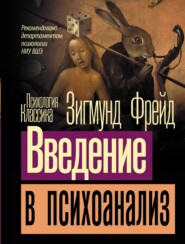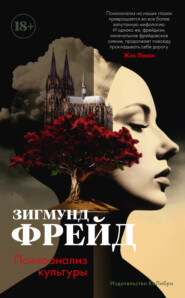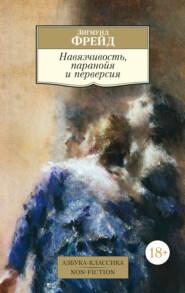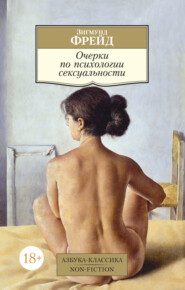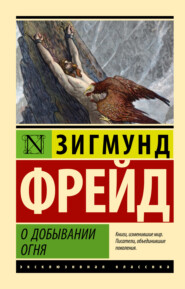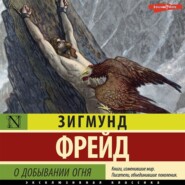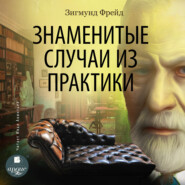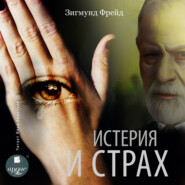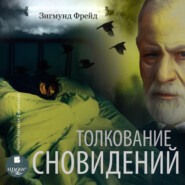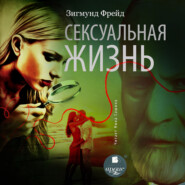По всем вопросам обращайтесь на: info@litportal.ru
(©) 2003-2024.
✖
The Interpretation of Dreams / Толкование сновидений
Настройки чтения
Размер шрифта
Высота строк
Поля
According to Strümpell,
some logical mental operations based on relations and connections disappear in the dream – naturally also at points where the nonsense is not obvious (p. 26). According to Spitta,
(p. 148) the presentations in the dream are entirely withdrawn from the laws of causality. Radestock
and others emphasize the weakness of judgment and decision in the dream. According to Jodl
(p. 123), there is no critique in the dream, and no correcting of a series of perceptions through the content of the sum of consciousness. The same author states that “all forms of conscious activity occur in the dream, but they are imperfect, inhibited, and isolated from one another.” The contradictions manifested in the dream towards our conscious knowledge are explained by Stricker
(and many others), on the ground that facts are forgotten in the dream and logical relations between presentations are lost (p. 98), etc., etc.
The authors who in general speak thus unfavourably about the psychic capacities in the dream, nevertheless admit that the dream retains a certain remnant of psychic activity. Wundt,
whose teaching has influenced so many other workers in the dream problems, positively admits this. One might inquire as to the kind and behaviour of the remnants of the psychic life which manifest themselves in the dream. It is now quite universally acknowledged that the reproductive capacity, the memory in the dream, seems to have been least affected; indeed it may show a certain superiority over the same function in the waking life (vid. supra, p. 10), although a part of the absurdities of the dream are to be explained by just this forgetfulness of the dream life. According to Spitta,
it is the emotional life of the psyche that is not overtaken by sleep and that then directs the dream. “By emotion [“Gemüth”] we understand the constant comprehension of the feelings as the inmost subjective essence of man” (p. 84).
Scholz
(p. 37) sees a psychic activity manifested in the dream in the “allegorising interpretation” to which the dream material is subjected. Siebeck
verifies also in the dream the “supplementary interpretative activity” (p. 11) which the mind exerts on all that is perceived and viewed. The judgment of the apparently highest psychic function, the consciousness, presents for the dream a special difficulty. As we can know anything only through consciousness, there can be no doubt as to its retention; Spitta, however, believes that only consciousness is retained in the dream, and not self-consciousness. Delbœuf
confesses that he is unable to conceive this differentiation.
The laws of association which govern the connection of ideas hold true also for the dream pictures; indeed, their domination evinces itself in a purer and stronger expression in the dream than elsewhere. Strümpell
(p. 70) says: “The dream follows either the laws of undisguised presentations as it seems exclusively or organic stimuli along with such presentations, that is, without being influenced by reflection and reason, aesthetic sense, and moral judgment.” The authors whose views I reproduce here conceive the formation of the dream in about the following manner: The sum of sensation stimuli affecting sleep from the various sources, discussed elsewhere, at first awaken in the mind a sum of presentations which represent themselves as hallucinations (according to Wundt, it is more correct to say as illusions, because of their origin from outer and inner stimuli). These unite with one another according to the known laws of association, and, following the same rules, in turn evoke a new series of presentations (pictures). This entire material is then elaborated as well as possible by the still active remnant of the organising and thinking mental faculties (cf. Wundt
and Weygandt
). But thus far no one has been successful in finding the motive which would decide that the awakening of pictures which do not originate objectively follow this or that law of association.
But it has been repeatedly observed that the associations which connect the dream presentations with one another are of a particular kind, and different from those found in the waking mental activity. Thus Volkelt
says: “In the dream, the ideas chase and hunt each other on the strength of accidental similarities and barely perceptible connections. All dreams are pervaded by such loose and free associations.” Maury48 attaches great value to this characteristic of connection between presentations, which allows him to bring the dream life in closer analogy to certain mental disturbances. He recognises two main characters of the délire: “(1) une action spontanée et comme automatique de l̕esprit; (2) une association vicieuse et irregulière des idées” (p. 126). Maury gives us two excellent examples from his own dreams, in which the mere similarity of sound forms the connection of the dream presentations. He dreamed once that he undertook a pilgrimage (pélerinage) to Jerusalem or Mecca. After many adventures he was with the chemist Pelletier; the latter after some talk gave him a zinc shovel (pelle) which became his long battle sword in the dream fragment which followed (p. 137). On another occasion he walked in a dream on the highway and read the kilometres on the milestones; presently he was with a spice merchant who had large scales with which to weigh Maury; the spice merchant then said to him: “You are not in Paris; but on the island Gilolo.” This was followed by many pictures, in which he saw the flower Lobelia, then the General Lopez, of whose demise he had read shortly before. He finally awoke while playing a game of lotto.
We are, however, quite prepared to hear that this depreciation of the psychic activities of the dream has not remained without contradiction from the other side. To be sure, contradiction seems difficult here. Nor is it of much significance that one of the depreciators of dream life, Spitta
(p. 118), assures us that the same psychological laws which govern the waking state rule the dream also, or that another (Dugas19) states: “Le rêve n̕est pas déraison ni même irraison pure,” as long as neither of them has made any effort to bring this estimation into harmony with the psychic anarchy and dissolution of all functions in the dream described by them. Upon others, however, the possibility seems to have dawned that the madness of the dream is perhaps not without its method – that it is perhaps only a sham, like that of the Danish prince, to whose madness the intelligent judgment here cited refers. These authors must have refrained from judging by appearances, or the appearance which the dream showed to them was quite different.
Without wishing to linger at its apparent absurdity, Havelock Ellis
considers the dream as “an archaic world of vast emotions and imperfect thoughts,” the study of which may make us acquainted with primitive stages of development of the psychic life. A thinker like Delbœuf
asserts – to be sure without adducing proof against the contradictory material, and hence indeed unjustly: “Dans le sommeil, hormis la perception, toutes les facultés de l̕esprit, intelligence, imagination, mémoire, volonté, moralité, restant intactes dans leur essence; seulement, elles s̕appliquent à des objets imaginaires et mobiles. Le songeur est un acteur qui joue à volonté les fous et les sages, les bourreaus et les victimes, les nains et les géants, les démons et les anges” (p. 222). The Marquis of Hervey, who is sharply controverted by Maury,
and whose work I could not obtain despite all effort, seems to combat most energetically the under-estimation of the psychic capacity in the dream. Maury speaks of him as follows (p. 19): “M. le Marquis d̕Hervey prête à l̕intelligence, durant le sommeil toute sa liberté d̕action et d̕attention et il ne semble faire consister le sommeil que dans l̕occlusion des sens, dans leur fermeture au monde extérieur; en sorte que l̕homme qui dort ne se distingué guère, selon sa manière de voir, de l̕homme qui laisse vaguer sa pensée en se bouchant les sens; toute la différence qui séparé alors la pensée ordinaire du celle du dormeur c̕est que, chez celui-ci, l̕idée prend une forme visible, objective et ressemble, à s̕y meprendre, à la sensation déterminée par les objets extérieurs; le souvenir revêt l̕apparence du fait présent.”
Maury adds, however; “Qu̕il y a une différence de plus et capitale à savoir que les facultés intellectuelles de l̕homme endormi n̕offrent pas l̕équilibre qu̕elles gardent chez l̕homme l̕éveillé.”
The scale of the estimation of the dream as a psychic product has a great range in the literature; it reaches from the lowest under-estimation, the expression of which we have come to know, through the idea of a value not yet revealed to the over-estimation which places the dream far above the capacities of the waking life. Hildebrandt,
who, as we know, sketches the psychological characteristics into three antinomies, sums up in the third of these contradistinctions the extreme points of this series as follows (p. 19): “It is between a climax, often an involution which raises itself to virtuosity, and on the other hand a decided diminution and weakening of the psychic life often leading below the human niveau.”
“As for the first, who could not confirm from his own experience that, in the creations and weavings of the genius of the dream, there sometimes comes to fight a profundity and sincerity of emotion, a tenderness of feeling, a clearness of view, a fineness of observation, and a readiness of wit, all which we should modestly have to deny that we possess as a constant property during the waking life? The dream has a wonderful poetry, an excellent allegory, an incomparable humour, and a charming irony. It views the world under the guise of a peculiar idealisation, and often raises the effect of its manifestations into the most ingenious understanding of the essence lying at its basis. It represents for us earthly beauty in true heavenly radiance, the sublime in the highest majesty, the actually frightful in the most gruesome figure, and the ridiculous in the indescribably drastic comical; and at times we are so full of one of these impressions after awakening that we imagine that such a thing has never been offered to us by the real world.”
One may ask, is it really the same object that the depreciating remarks and these inspired praises are meant for? Have the latter overlooked the stupid dreams and the former the thoughtful and ingenious dreams? And if both kinds do occur – that is, dreams that merit to be judged in this or that manner – does it not seem idle to seek the psychological character of the dream? would it not suffice to state that everything is possible in the dream, from the lowest depreciation of the psychic life to a raising of the same which is unusual in the waking state? As convenient as this solution would be it has this against it, that behind the efforts of all dream investigators, it seems to be presupposed that there is such a definable character of the dream, which is universally valid in its essential features and which must eliminate these contradictions.
It is unquestionable that the psychic capacities of the dream have found quicker and warmer recognition in that intellectual period which now lies behind us, when philosophy rather than exact natural science ruled intelligent minds. Utterances like those of Schubert, that the dream frees the mind from the power of outer nature, that it liberates the soul from the chains of the sensual, and similar opinions expressed by the younger Fichte[10 - Cf. Haffner 32 and Spitta 64.], and others, who represent the dream as a soaring up of the psychic life to a higher stage, hardly seem conceivable to us to-day; they are only repeated at present by mystics and devotees. With the advance of the scientific mode of thinking, a reaction took place in the estimation of the dream. It is really the medical authors who are most prone to underrate the psychic activity in the dream, as being insignificant and invaluable, whereas, philosophers and unprofessional observers – amateur psychologists – whose contributions in this realm can surely not be overlooked, in better agreement with the popular ideas, have mostly adhered to the psychic value of the dream. He who is inclined to underrate the psychic capacity in the dream prefers, as a matter of course, the somatic exciting sources in the etiology of the dream; he who leaves to the dreaming mind the greater part of its capacities, naturally has no reason for not also admitting independent stimuli for dreaming.
Among the superior activities which, even on sober comparison, one is tempted to ascribe to the dream life, memory is the most striking; we have fully discussed the frequent experiences which prove this fact. Another superiority of the dream life, frequently extolled by the old authors, viz. that it can regard itself supreme in reference to distance of time and space, can be readily recognised as an illusion. This superiority, as observed by Hildebrandt,
Вы ознакомились с фрагментом книги.
Приобретайте полный текст книги у нашего партнера:
Приобретайте полный текст книги у нашего партнера:





